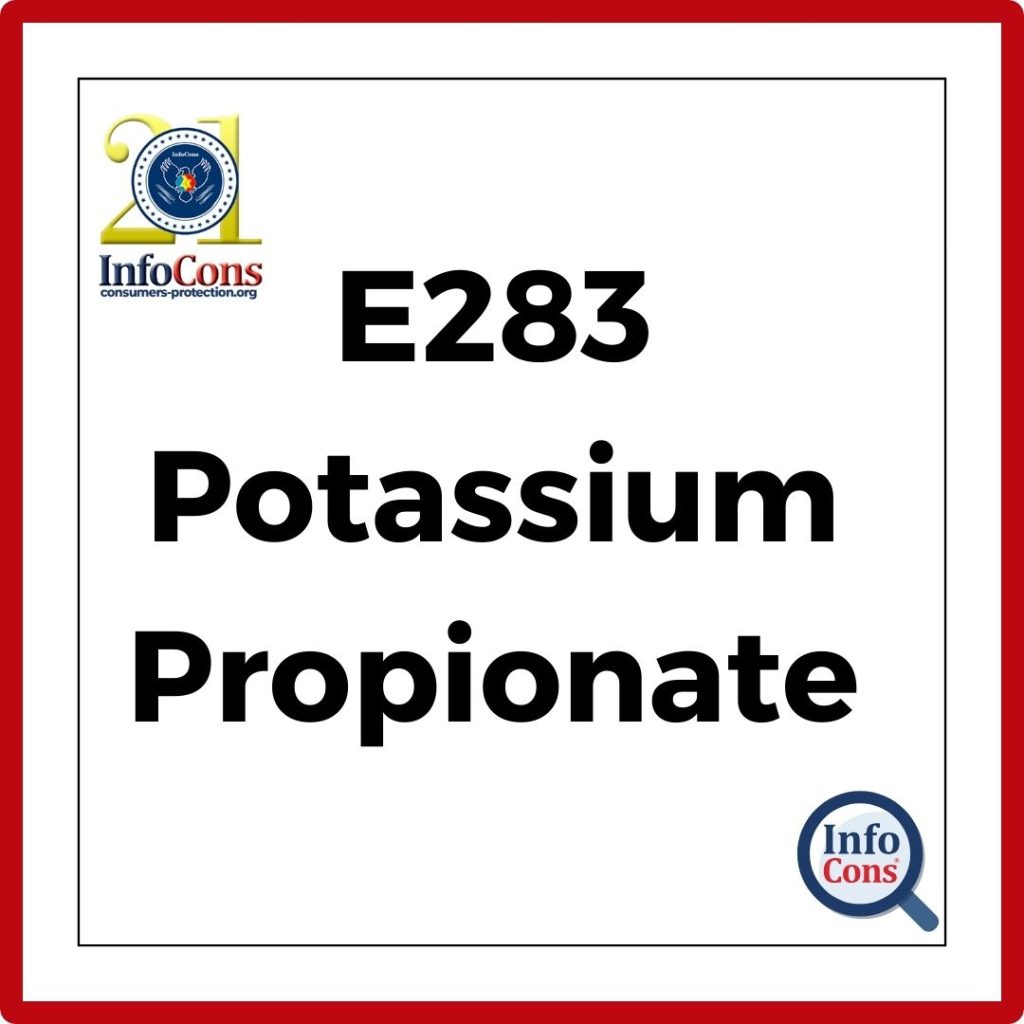What is the food additive E283 ?
E283, also known as potassium propionate, is a food additive from the category of natural preservatives, obtained through bacterial fermentation. This compound is widely used in bakery and dairy products due to its strong antimicrobial properties, especially against molds and certain bacteria.
E283, or potassium propionate, is the potassium salt of propionic acid, a natural short-chain fatty acid. In its pure form, potassium propionate is a white, crystalline, odorless powder that is highly soluble in water. It is classified as a preservative and is commonly used to extend the shelf life of various food products by preventing the growth of harmful microorganisms.
Do You Know What Food Additives are ? InfoCons Consumer Protection Informs You !
What is the recommended daily intake ?
The safety of the food additive E283 has been widely studied and is generally recognized as safe (GRAS) by the European Food Safety Authority (EFSA). When used within the recommended limits, it poses no significant health risks to consumers. EFSA has concluded that potassium propionate can be classified as having an “unspecified” recommended daily intake. The maximum inclusion level is 2000 mg/kg.
In which products is the food additive E283 found ? InfoCons Consumer Protection informs you !
- Bakery products: The most common use of potassium propionate is in the baking industry. It is added to bread, cakes, and pastries to prevent mold development, which can occur quickly in moist environments.
- Dairy products: In cheese and other dairy products, E283 helps inhibit the growth of molds and certain bacteria, ensuring that the product remains fresh for a longer period.
- Processed meat: Potassium propionate is sometimes used in processed meats to inhibit the growth of spoilage organisms and extend the shelf life.
- Animal feed: Beyond human food, E283 is also used in animal feed to prevent mold contamination, which can be harmful to animals.
Did you know about Bisphenol A and phthalates in food packaging ? InfoCons Consumer Protection informs you !
Contraindications and risks
Some people may experience mild allergic reactions, such as skin irritation or digestive discomfort, although these cases are rare. A small number of studies have suggested that propionates, including potassium propionate, might be linked to behavioral problems in children, such as irritability and hyperactivity. However, more research is needed to clarify any potential connection.
Moreover, there is a growing consumer demand for “clean label” products, which are perceived as healthier and free from synthetic additives. As a result, some manufacturers are exploring natural alternatives to E283, such as cultured wheat or fermented flour, which also have antimicrobial properties.
In conclusion, E283, or potassium propionate, is a valuable food additive that plays a critical role in preventing spoilage and extending the shelf life of various food products, especially in the baking industry. Although it is generally considered safe and effective, ongoing research and changing consumer preferences may influence its use in the future.
Download the InfoCons application !
Look for products that have a cleaner label or use natural additives. By installing Consumer Protection InfoCons App and scanning the barcodes of food products, you can find out the number and type of food additives they contain.
Author – Cosmina Nițu
Master in Nutrition – Infant and new born nutrition
Sources:
https://www.efsa.europa.eu/en/ – European Food Safety Authority (EFSA)
InfoCons – European Organization for Consumers Protection and Promotion of Programs and Strategies , a full member of the World Organization Consumers International, founding member of the Federation of Consumer Associations, and member of ANEC.
